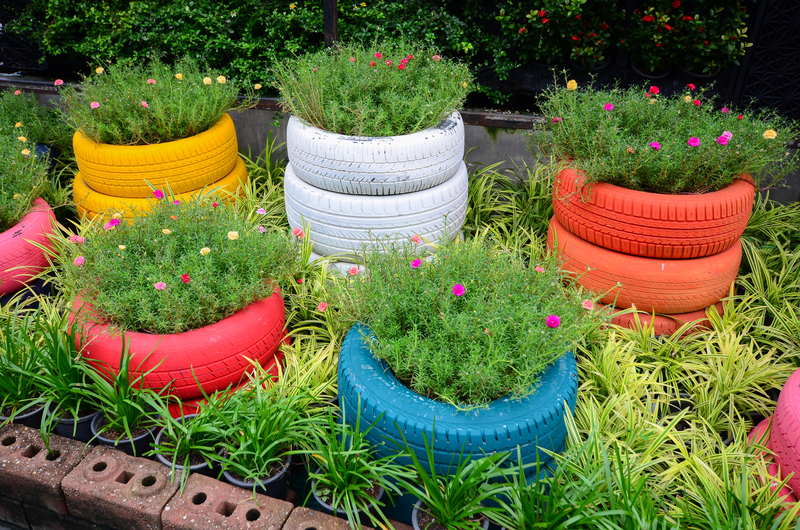Holistic Strategies for Minimizing Household Waste
Learn actionable, eco-friendly, and holistic strategies that effectively minimize household waste. This detailed guide explores sustainable practices, innovative waste reduction, and mindful consumption for a greener, cleaner home and planet.
Introduction: The Urgency of Reducing Household Waste
In today's fast-paced world, households generate vast amounts of waste. From food scraps to plastic packaging, the accumulation strains our environment and natural resources. Embracing holistic methods to minimize household waste isn't just beneficial for the environment--it's also advantageous for personal well-being and finances.
This article provides a comprehensive look at eco-friendly waste management, offering practical tips and holistic strategies that empower you to create a sustainable home and reduce your ecological footprint. Whether you are new to sustainable living or seeking advanced techniques, you'll find actionable advice to minimize and manage waste effectively.

Understanding Holistic Household Waste Minimization
Holistic waste minimization involves addressing every stage of the waste cycle in your home--from purchasing choices to disposal methods. Unlike traditional approaches, holistic strategies consider the environmental, social, and economic impacts of consumption.
- Environmental Impact: Lower landfill use, reduced pollution, and conservation of resources.
- Economic Impact: Cost savings through efficient usage and less frequent purchases.
- Social Impact: Community-oriented practices, responsible consumption, and enhancing local ecosystems.
By tackling waste at every level, you transform your home into a center for sustainable waste management and responsible consumption.
The Three R's and Beyond: Foundations of Waste Reduction
Most are familiar with the concept of “Reduce, Reuse, Recycle.” However, developing a holistic strategy for minimizing household waste involves expanding beyond these basics. Let's break down these key principles and explore additional concepts:
1. Reduce: Thoughtful Consumption
- Buy only what you need: Avoid impulse purchases and plan meals/household needs in advance.
- Choose products with minimal packaging to decrease disposal burden.
- Opt for quality over quantity: Durable products last longer and lead to less waste.
2. Reuse: Extend Product Life
- Repurpose containers and packaging whenever possible.
- Utilize reusable bags, bottles, and utensils instead of single-use alternatives.
- Donating unwanted items extends their lifespan and helps others.
3. Recycle (and Upcycle): Smarter Sorting
- Stay updated on local recycling guidelines and separate recyclables accordingly.
- Try creative upcycling: Repurpose glass jars, old clothing, or furniture into new items.
- Support brands using recycled materials to close the loop.
4. Refuse: Preventing Waste at the Source
- Say no to unnecessary freebies and marketing samples.
- Decline single-use plastic straws, cutlery, or bags when shopping or dining out.
5. Rot: Composting Organic Waste
- Set up a home composting system for food scraps and yard waste.
- Incorporate all compostable materials such as eggshells, coffee grounds, and vegetable peels.
- Use finished compost for gardens, potted plants, or share with community gardens.
Reducing Household Waste: Room-by-Room Guide
Implementing holistic waste reduction strategies throughout your home ensures every area contributes to sustainable living. Below are targeted tips for minimizing waste in each room:
Kitchen: The Heart of Waste Minimization
- Adopt a weekly meal plan to prevent food spoilage and excess purchases.
- Store food properly with reusable wraps and containers to extend life.
- Buy in bulk to minimize packaging and save money.
- Compost organic waste to reduce landfill contributions.
- Avoid single-use plastics and prioritize reusable alternatives.
Bathroom: Reducing Disposable Products
- Choose bar soaps and shampoo bars over plastic bottles.
- Opt for refillable containers for cleaning and personal care products.
- Switch to bamboo toothbrushes and compostable floss.
- Use washable cloths instead of disposable wipes.
Living Room: Mindful Entertainment & Decor
- Digitize media to replace DVDs, CDs, and physical magazines.
- Choose timeless, durable furniture and avoid frequent replacements.
- Donate or sell unwanted items instead of discarding them.
Laundry: Eco-Friendly Clothing Care
- Wash full loads to conserve water and energy.
- Air-dry clothes when possible to extend garment life.
- Avoid microplastics by choosing natural fiber clothing.
- Repurpose old clothes into cleaning rags or new textiles.
Advanced Holistic Strategies for Sustainable Waste Management
Beyond everyday habits, several advanced holistic waste reduction methods can make your household even more eco-friendly:
Community Composting & Collective Efforts
- Participate in local composting programs if home composting isn't feasible.
- Engage with neighborhood waste reduction initiatives, such as tool libraries and food-sharing networks.
- Advocate for municipal recycling improvements and zero-waste policies.
Eco-Conscious Shopping & Consumer Power
- Support zero-waste or bulk stores that allow you to bring your own containers.
- Buy from local producers to minimize transportation emissions and packaging.
- Choose products made from recycled or upcycled materials.
- Read product labels to evaluate sustainability claims and certifications.
DIY Solutions & Creative Upcycling
- Make your own cleaning products using natural ingredients like vinegar and baking soda.
- Repurpose glass jars as storage containers or lanterns.
- Transform old clothes into quilts, tote bags, or art projects.
Addressing Food Waste Holistically
Food waste is a major contributor to household landfill volumes. Adopting a holistic food waste reduction strategy not only benefits the environment but also saves money:
- Use a "first in, first out" system: Place older food items in front so they're used first.
- Get creative with leftovers--turn scraps into soups, stews, or smoothies.
- Freeze excess produce or meals for longer shelf-life.
- Share surplus food with neighbors, friends, or local food banks.
- Compost unavoidable food waste to complete the circle.
Waste Audit: Analyze, Reflect, Improve
One of the most effective holistic strategies for minimizing household waste is conducting a waste audit--analyzing your trash and recycling to better understand habits and identify areas for improvement:
- Collect all household waste for a week.
- Sort items by category (plastic, food, paper, etc.).
- Identify recurring waste items and brainstorm alternatives.
- Set practical goals for reducing specific waste streams.
- Repeat the audit periodically to track progress and stay motivated.
Benefits of Reducing Household Waste Holistically
- Environmental Stewardship: Lower pollution, reduced demand for raw materials, and protection of wildlife habitats.
- Cost Savings: Less money spent on disposable goods and unnecessary purchases.
- Personal Health: Cleaner living spaces, fewer harmful chemicals, and healthier food choices.
- Community Impact: More resilient neighborhoods and support for local businesses.
Overcoming Common Barriers to Waste Minimization
Despite best intentions, many encounter challenges when shifting to holistic waste management. Below are solutions to typical obstacles:
- Lack of knowledge: Start small--educate yourself through blogs, documentaries, and community workshops.
- Limited time: Integrate waste-conscious habits into your daily routine, like carrying a reusable bag.
- Cultural norms: Share your journey and positive outcomes with friends and family to inspire change.
- Convenience bias: Prepare ahead--keep reusable items accessible, and batch tasks such as bulk shopping or meal prep.
Technology's Role in Minimizing Home Waste
Modern technology offers innovative solutions for minimizing household waste:
- Smart kitchen appliances help track expiration dates and manage portions.
- Waste management apps track recycling pickups, donation opportunities, and eco-friendly product sources.
- Composting gadgets allow indoor breakdown of organic materials, even in small spaces.
- Online communities facilitate sharing, lending, selling, and swapping needed items instead of buying new.

Educate, Involve, and Inspire: A Family Affair
Minimizing household waste is most effective when everyone participates. Foster a culture of sustainability with these approaches:
- Teach children the value of resources through hands-on activities like sorting recyclables or composting.
- Set family waste reduction challenges and celebrate achievements together.
- Display progress charts to keep the process engaging and transparent.
- Involve older family members in sharing tips from past eras of resourcefulness and thrift.
Conclusion: Embracing Holistic Lifestyle Changes for a Greener Tomorrow
Adopting holistic strategies for minimizing household waste isn't a one-time project, but a continuous journey toward sustainability. By considering the broader impacts of your everyday choices, engaging your community, and leveraging both traditional and modern practices, you can make a significant difference.
Start today: Choose a few actionable steps from this guide, involve your household, and celebrate your progress as you contribute to a cleaner, healthier planet and inspire those around you. Your efforts matter, and together, we can embrace a future with less waste and more mindful living.
Further Resources on Waste Minimization
- Zero Waste Home by Bea Johnson
- Local municipal recycling programs and community composting initiatives
- Online eco-conscious forums and social media groups for practical inspiration
- Documentaries such as "The Story of Stuff" or "A Plastic Ocean"
Together, let's make household waste minimization a rewarding, impactful, and enjoyable part of everyday life!